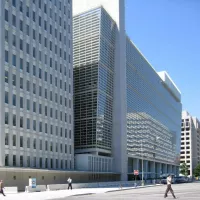Bosnia and Herzegovina is a country in Southeast Europe on the Balkan Peninsula, bordering Serbia, Montenegro, and Croatia. It has a small coastline on the Adriatic Sea. The climate is moderate continental, with hot summers and cold winters. Its geography is largely mountainous, especially in the central and eastern regions (Dinaric Alps), while Herzegovina in the south has a Mediterranean climate. Sarajevo is the capital and largest city.
1903: Association Football Origins
Association football in Bosnia and Herzegovina dates back to 1903.
October 1908: Annexation Proclamation Published
On 6 October 1908, taking advantage of turmoil in the Ottoman Empire, Austro-Hungarian diplomacy published the annexation proclamation regarding Bosnia and Herzegovina.
1908: Austro-Hungarian Troops Withdraw from Sanjak
In 1908, Austro-Hungarian troops withdrew from the Sanjak of Novi Pazar, which had remained under Ottoman administration, as part of the agreements reached at the Congress of Berlin in 1878.
March 1909: Acceptance of Annexation
In March 1909, despite international objections, Russians and their client state, Serbia, were compelled to accept the Austro-Hungarian annexation of Bosnia and Herzegovina.
1910: Census of Land Ownership
According to the 1910 final census of land ownership conducted in Austria-Hungary, Bosnian Muslims owned 91.1% of the property.
1910: First Constitution Proclaimed
In 1910, Habsburg Emperor Franz Joseph proclaimed the first constitution in Bosnia, leading to the relaxation of earlier laws, elections, the formation of the Bosnian parliament, and the growth of new political life.
June 1914: Assassination in Sarajevo
On 28 June 1914, Gavrilo Princip, a Bosnian Serb member of Young Bosnia, assassinated Archduke Franz Ferdinand in Sarajevo, sparking World War I.
1914: Establishment of Schutzkorps
In 1914, Austro-Hungarian authorities established the Schutzkorps, an auxiliary militia predominantly recruited among Bosnian Muslims, to suppress rebel Serbs, leading to persecution and violence.
1919: National Theater Founding
The National Theater in Sarajevo was founded in 1919, with dramatist Branislav Nušić as its first director.
1929: Establishment of the Kingdom of Yugoslavia
In 1929, the establishment of the Kingdom of Yugoslavia led to the redrawing of administrative regions into banates, removing any trace of a Bosnian entity.
1939: Cvetković-Maček Agreement
In 1939, the Cvetković-Maček Agreement encouraged what was essentially a partition of Bosnia and Herzegovina between Croatia and Serbia.
April 1941: Chetniks Pursue Genocidal Campaign
Beginning in April 1941, Chetniks pursued a genocidal campaign against ethnic Muslims and Croats, as well as persecuting a large number of communist Serbs and other Communist sympathizers.
April 1941: Invasion by Nazi Germany
In April 1941, after attempts at appeasement and a coup d'état, Yugoslavia was invaded by Nazi Germany, marking a turning point in the region's history.
October 1941: Resolution of Sarajevo Muslims
On 12 October 1941, a group of 108 prominent Sarajevan Muslims signed the Resolution of Sarajevo Muslims, condemning the persecution of Serbs organized by the Ustaše and requesting security for all citizens.
1941: Yugoslav Communists Organize Resistance
Starting in 1941, Yugoslav communists under Josip Broz Tito organized the Partisans, a multi-ethnic resistance group that fought against Axis and Chetnik forces.
November 1943: Reestablishment as Republic
On 29 November 1943, the Anti-Fascist Council for the National Liberation of Yugoslavia (AVNOJ) held a founding conference in Jajce where Bosnia and Herzegovina was reestablished as a republic within the Yugoslav federation.
1943: Oslobođenje Founding
In 1943, Oslobođenje (Liberation) was founded, becoming one of the country's longest running continuously circulating newspapers.
May 1945: Bosnian Croats Killed During the War
Between April 1941 and May 1945, between 64,000 and 79,000 Bosnian Croats were killed during the war.
1946: Constitution Establishes Republic
At the end of World War II, the establishment of the Socialist Federal Republic of Yugoslavia, with the constitution of 1946, officially made Bosnia and Herzegovina one of six constituent republics in the new state.
1958: Nobel Prize Nomination
In 1958, the Association of Writers of Yugoslavia nominated Ivo Andrić as its first ever candidate for the Nobel Prize in Literature.
1963: Yugoslavia National Basketball Team
From 1963 through 1990, the Yugoslavia men's national basketball team included Bosnian players such as Dražen Dalipagić and Mirza Delibašić.
1972: Volkswagen Factory in Sarajevo
From 1972, Volkswagen operated as part of TAS, a car factory in Sarajevo, indicating Bosnia's growing industrial ties.
1975: Coca-Cola Operations in Bosnia
From 1975, Coca-Cola began operations in Bosnia, contributing to the country's economic development.
1976: European Cup Win
In 1976, the Borac handball club won the European Cup.
1978: World Title
In 1978, middle-weight boxer Marijan Beneš won the World Title against Elisha Obed from The Bahamas.
1979: European Champions
In 1979, the Bosna Royal basketball club from Sarajevo were European Champions.
1980: Turbulent Period Following Tito's Death
Following Tito's death in 1980, Bosnia and Herzegovina entered a turbulent period, but the efforts of politicians such as Džemal Bijedić, Branko Mikulić and Hamdija Pozderac proved key in protecting the sovereignty of Bosnia and Herzegovina.
1981: Start of Apparitions in Međugorje
Since 1981, it has been estimated that 30 million pilgrims have come to Međugorje since the reputed apparitions began.
February 1984: Winter Olympics in Sarajevo
From February 7 to 19, 1984, Sarajevo hosted the 14th Winter Olympics, the most important international sporting event in the history of Bosnia and Herzegovina.
1984: Sarajevo Hosts Winter Olympics
In 1984, Sarajevo hosted the Winter Olympics.
1989: Women's European Club Championship
In 1989, the women's basketball club Jedinstvo Aida from Tuzla won the Women's European Club Championship.
November 1990: Multi-Party Parliamentary Elections
In November 1990, multi-party parliamentary elections were held throughout Bosnia and Herzegovina, resulting in a national assembly where communist power was replaced by a coalition of three ethnically based parties.
1990: Elections in Bosnia and Herzegovina
In 1990, elections were held in Bosnia and Herzegovina which led to a three-ethnic coalition government.
1990: Forest Cover Statistics
In 1990, forest cover in Bosnia and Herzegovina was around 2,210,000 hectares.
1990: Ronchetti Cup Final
In 1990, the women's basketball club Jedinstvo Aida from Tuzla won the Ronchetti Cup final.
1990: Yugoslavia National Basketball Team
Through 1990, the Yugoslavia men's national basketball team, which won medals in every world championship from 1963 through 1990, included Bosnian players such as FIBA Hall of Famers Dražen Dalipagić and Mirza Delibašić.
March 1991: Alleged Agreement on Partition
In March 1991, it is believed that Serbian leader Slobodan Milošević and Croatian leader Franjo Tuđman agreed on a partition of Bosnia and Herzegovina, aiming to establish Greater Serbia and Greater Croatia.
October 1991: Serb Parliament Members Abandon Central Parliament
In October 1991, Serb members of parliament, mainly from the Serb Democratic Party, left the central parliament in Sarajevo to form the Assembly of the Serb People of Bosnia and Herzegovina. This action marked the end of the post-1990 election three-ethnic coalition government.
October 1991: Declaration of Sovereignty
On October 15, 1991, Bosnia and Herzegovina declared its sovereignty.
November 1991: Proclamation of Croatian Community of Herzeg-Bosnia
On November 18, 1991, the Croatian Democratic Union (HDZ) branch in Bosnia and Herzegovina proclaimed the Croatian Community of Herzeg-Bosnia in a separate part of the territory, an action unrecognized and declared illegal by the Bosnian Government.
1991: Population Census
According to the 1991 census, Bosnia and Herzegovina had a population of 4,369,319.
1991: International Handball Federation Cup
In 1991, the Borac handball club won the International Handball Federation Cup.
January 1992: Establishment of the Serbian Republic of Bosnia and Herzegovina
On January 9, 1992, the Assembly of the Serb People of Bosnia and Herzegovina established the Serbian Republic of Bosnia and Herzegovina on part of the country's territory.
March 1992: Independence Referendum and Declaration
In March 1992, specifically on the 29th of February and the 1st of March, a referendum for independence was held, which was largely boycotted by Serbs. Then, on March 3, 1992, Bosnia and Herzegovina declared independence.
April 1992: International Recognition
On April 6, 1992, Bosnia and Herzegovina received international recognition.
May 1992: Admission to the United Nations
On May 22, 1992, the Republic of Bosnia and Herzegovina was admitted as a member state of the United Nations.
June 1992: Withdrawal of Yugoslav People's Army
In June 1992, international recognition of Bosnia and Herzegovina led to increased diplomatic pressure, resulting in the official withdrawal of the Yugoslav People's Army (JNA) from the country.
August 1992: Renaming of Serbian Republic
In August 1992, the Serbian Republic of Bosnia and Herzegovina was renamed Republika Srpska.
1992: Recognition of Minority Languages
In 1992, Bosnia and Herzegovina recognized several minority languages, including Albanian, Montenegrin, Czech, Italian, Hungarian, Macedonian, German, Polish, Romani, Romanian, Rusyn, Slovak, Slovene, Turkish, Ukrainian and Jewish (Yiddish and Ladino), according to the European Charter for Regional or Minority Languages (ECRML).
1992: Republic Proclaims Independence
In 1992, following the breakup of Yugoslavia, Bosnia and Herzegovina proclaimed independence, marking a pivotal moment in its history.
1992: Railway Operations
In 1992, railway operations in Bosnia and Herzegovina became successors of the Yugoslav Railways following independence from Yugoslavia.
1992: Initial Proclamation of Independence
In 1992, upon initially proclaiming independence, the country was officially named the Republic of Bosnia and Herzegovina.
March 1994: Washington Agreement
In March 1994, the Bosniak-Croat conflict ended with the signing of the Washington Agreement, leading to the creation of the Bosniak-Croat Federation of Bosnia and Herzegovina.
1994: Chess Olympiad Runner-Up
In 1994, Bosnian Chess was a runner-up at the 31st Chess Olympiad in Moscow, featuring Grandmasters Predrag Nikolić, Ivan Sokolov and Bojan Kurajica.
July 1995: Srebrenica Massacre
In July 1995, the Srebrenica massacre occurred, resulting in the deaths of over 8,000 Bosniak men and boys, later ruled as genocide by the International Criminal Tribunal for the former Yugoslavia (ICTY).
1995: Dayton Agreement and Name Change
Following the 1995 Dayton Agreement and the adoption of a new constitution, the official name of the country was changed to Bosnia and Herzegovina.
1995: Dnevni avaz Founding
In 1995, Dnevni avaz (Daily Voice) was founded.
1995: End of the Bosnian War
In 1995, the Bosnian War ended, marking the largest outbreak of public anger over high unemployment and political inertia in the country.
1995: Dayton Agreement
In 1995, the Dayton Agreement formally established the entities of the Federation of Bosnia and Herzegovina and Republika Srpska, based on the territories held by warring sides, in response to changes in the country's ethnic structure.
1995: End of Bosnian War with Dayton Agreement
In late 1995, the Bosnian War concluded with the signing of the Dayton Agreement, establishing a framework for peace and governance in Bosnia and Herzegovina.
1995: Post-War Media Development
In the early post-war period, starting in 1995, media development in Bosnia and Herzegovina was guided mainly by international donors and cooperation agencies.
1995: High Representative Powers
Since 1995, the High Representative for Bosnia and Herzegovina has had the power to bypass the elected parliamentary assembly.
1995: Sarajevo Film Festival Establishment
The Sarajevo Film Festival was established in 1995, during the Bosnian War and has become the premier and largest film festival in the Balkans and Southeast Europe.
1995: Implementation of the Dayton Agreement
The implementation of the Dayton Agreement in 1995 focused policymakers and the international community on regional stabilization in the countries-successors of the former Yugoslavia.
1996: World Bank Group Census
In 1996, the World Bank Group census showed a decrease to 3,764,425 residents in Bosnia and Herzegovina.
1997: High Representative Powers Expanded
Since 1997, the High Representative for Bosnia and Herzegovina has been able to remove elected officials.
2000: Creation of Brčko District
In 2000, the Brčko District was created in the north of the country, from land taken from both entities. It belongs to both but is governed by neither.
2000: Constitutional Court Ruling on Languages
In 2000, the Constitutional Court verified the equal status of Bosnian, Serbian, and Croatian, ruling that entity constitutions were incompatible with the state constitution regarding language recognition.
2000: Bundesliga Season
In the 2000 Bundesliga season, Sergej Barbarez was joint-top scorer.
2001: No Man's Land Award
In 2001, Danis Tanović's film No Man's Land won the Academy Award and Golden Globe Award.
2003: GDP and Per Capita Income Increase
From 2003 to 2004, figures show GDP and per capita income increased 10% in Bosnia.
2004: Summer Paralympics Volleyball
Bosnia and Herzegovina was the world champion of volleyball at the 2004 Summer Paralympics.
2004: GDP and Per Capita Income Increase
From 2003 to 2004, figures show GDP and per capita income increased 10% in Bosnia.
2004: Economic Overview
In 2004, Bosnia and Herzegovina's annual inflation was 1.9%, the lowest in the region. Real GDP growth rate was 5% according to the Central Bank of Bosnia and Herzegovina and Statistical Office of Bosnia and Herzegovina in 2004.
2004: Formation of Ministry of Defence
In 2004, the Ministry of Defence of Bosnia and Herzegovina was formed.
2005: UEFA Cup
In 2005, Elvir Rahimić won the UEFA Cup with Russian club CSKA Moscow.
2005: Unification of Armed Forces
In 2005, the Armed Forces of Bosnia and Herzegovina (OSBiH) were unified by merging the Army of the Federation of Bosnia and Herzegovina and the Army of Republika Srpska.
2005: Post-War Media Development
Until 2005, media development in Bosnia and Herzegovina was guided mainly by international donors and cooperation agencies, who invested to help reconstruct, diversify, democratize and professionalize media outlets.
January 2006: Communications Market Liberalization
In January 2006, the Bosnian communications market was fully liberalized.
2006: Sarajevo Ranking
In 2006, Lonely Planet ranked Sarajevo, the national capital, as #43 on the list of the best cities in the world.
2006: Formation of Air Force and Anti-Aircraft Defence
In 2006, the Air Force and Anti-Aircraft Defence of Bosnia and Herzegovina was formed when elements of the Army of the Federation of Bosnia and Herzegovina and the Republika Srpska Air Force were merged.
2006: UNESCO World Heritage Listing
In 2006, twenty stećak necropolis sites in Bosnia and Herzegovina were added to the UNESCO World Heritage List.
2007: International Assistance Mission
Beginning in 2007, the Ministry of Defence of Bosnia and Herzegovina undertook the army's first ever international assistance mission, enlisting the military to serve with ISAF peace missions to Afghanistan, Iraq and the Democratic Republic of the Congo.
2007: Ars Aevi Founding
In 2007, Ars Aevi, a museum of contemporary art that includes works by renowned world artists, was founded in Sarajevo.
2007: Stabilisation and Association Process Initiation
In 2007, Bosnia and Herzegovina initiated the Stabilisation and Association Process (SAP) with the European Union.
2009: World Rafting Championship
In 2009, the Vrbas and Tara rivers in Bosnia and Herzegovina hosted The World Rafting Championship.
April 2010: Candidate for NATO Membership
In April 2010, Bosnia and Herzegovina became a candidate for NATO membership, signifying its aspirations for closer integration with Western security structures.
April 2010: NATO Membership Action Plan
On April 23, 2010, Bosnia and Herzegovina received the Membership Action Plan from NATO.
2010: PPS GDP per capita
In 2010, Bosnia and Herzegovina's PPS GDP per capita stood at 29 per cent of the EU average, according to Eurostat data.
2010: Sarajevo Nomination
In 2010, Lonely Planet's "Best in Travel" nominated Sarajevo as one of the top ten cities to visit that year.
2011: Census Planned
A census had been planned for Bosnia and Herzegovina for 2011, but it was delayed.
2011: Amel Mekić European Champion
In 2011, Amel Mekić, a Bosnian judoka, became European champion.
September 2012: IMF Loan Announcement
In September 2012, The International Monetary Fund (IMF) announced a loan to Bosnia worth US$500 million to be delivered by Stand-By Arrangement, scheduled to be approved.
2012: Muslim Denominations
A 2012 survey found that 54% of Bosnia's Muslims were non-denominational, while 38% followed Sunnism.
2012: Census Planned
A census had been planned for Bosnia and Herzegovina for 2012, but it was delayed until October 2013.
2012: Summer Paralympics Volleyball
Bosnia and Herzegovina was the world champion of volleyball at the 2012 Summer Paralympics.
2012: Mountain Biking Destination
In 2012, National Geographic named Bosnia and Herzegovina as the best mountain biking adventure destination.
2012: Sarajevo wins "Best City to Visit" competition
Sarajevo also won travel blog Foxnomad's "Best City to Visit" competition in 2012, beating more than one hundred other cities around the entire world.
October 2013: Population Census Results
The 2013 census in Bosnia and Herzegovina found a total population of 3,531,159 people, a drop of approximately 20% since 1991.
2013: Census Data
According to data from the 2013 census published by the Agency for Statistics of Bosnia and Herzegovina, Bosniaks constituted 50.1% of the population, Serbs 30.8%, Croats 15.5% and others 2.7%.
2013: Religious Composition
According to the 2013 census, Muslims comprised 50.7% of the population of Bosnia and Herzegovina, Orthodox Christians 30.7%, and Catholic Christians 15.2%.
2013: European Indoor Championships
In 2013, Hamza Alić won the silver medal in shot put at the European Indoor Championships.
2013: UEFA Women's Champions League
In 2013, Milena Nikolić, a member of the women's national team, was the 2013–14 UEFA Women's Champions League top scorer.
2013: Population Loss
In 2013, according to the United Nations Population Fund, Bosnia and Herzegovina began losing 25,000 people yearly.
2013: 9th Greatest Adventure in the World
In 2013, the Huffington Post named Bosnia and Herzegovina the "9th Greatest Adventure in the World", citing its clean water and air, untouched forests, and wildlife.
2013: Mother Tongue Census
In the 2013 census, 52.86% of the population considered their mother tongue Bosnian, 30.76% Serbian, 14.6% Croatian, and 1.57% another language.
February 2014: Bosnian Spring Protests Begin
On February 4, 2014, protests known as the Bosnian Spring began in Tuzla, with workers demanding action on jobs, unpaid salaries, and pensions. These protests spread to other cities and involved violent clashes.
December 2014: International Debt
As of December 31, 2014, Bosnia and Herzegovina's international debt was $5.1 billion.
2014: Expected NATO Membership
Full membership in NATO for Bosnia and Herzegovina was initially expected in 2014, depending on the progress of reforms.
2014: N1 Platform Broadcast
Since 2014, the N1 platform has broadcast as an affiliate of CNN International, with offices in Sarajevo, Zagreb and Belgrade.
2014: FIFA World Cup
The Bosnia and Herzegovina national football team played at the 2014 FIFA World Cup, its first major tournament.
2015: Expected NATO Membership
Full membership in NATO for Bosnia and Herzegovina was initially expected in 2015, depending on the progress of reforms.
2015: Forest Ownership Statistics
In 2015, 74% of the forest area in Bosnia and Herzegovina was reported to be under public ownership, and 26% under private ownership.
2015: Under-16 Team Wins Gold
In 2015, the Bosnia and Herzegovina national under-16 basketball team won two gold medals, winning both 2015 European Youth Summer Olympic Festival as well as the 2015 FIBA Europe Under-16 Championship.
2015: IAAF World Athletics Championships
In 2015, track and field athlete Amel Tuka won a bronze medal in the 800 metres at the IAAF World Athletics Championships.
May 2016: Eurostat Conclusion on Census
In May 2016, Eurostat concluded that the census methodology used by the Bosnian statistical agency was in line with international recommendations.
December 2016: Public Debt Comparison
On December 31, 2016, the public debt was compared to the report on public debt issued on December 31, 2017 by the Council of Ministers of Bosnia and Herzegovina.
2016: Death in Sarajevo Award
In 2016, Danis Tanović's film Death in Sarajevo won the Silver Bear Grand Jury Prize.
December 2017: Public Debt Reduction
On December 31, 2017, the Council of Ministers of Bosnia and Herzegovina reported that public debt was reduced by €389.97 million, or more than 6%, compared to December 31, 2016. The public debt was €5.92 billion, amounting to 35.6% of GDP.
December 2017: Registered Companies and Revenues
As of December 2017, there were 32,292 registered companies in Bosnia and Herzegovina, with combined revenues of €33.572 billion for the year.
2017: Tourism Statistics
In 2017, 1,307,319 tourists visited Bosnia and Herzegovina, an increase of 13.7%, and had 2,677,125 overnight hotel stays, a 12.3% increase from the previous year. 71.5% of the tourists came from foreign countries.
2017: Ranking in Job Creation by Foreign Investment
In 2017, Bosnia and Herzegovina ranked third globally in the number of new jobs created by foreign investment, relative to its population.
2017: Foreign Direct Investment
In 2017, Bosnia and Herzegovina received €397.35 million in foreign direct investment, equivalent to 2.5% of GDP.
2017: Foreign Trade
In 2017, Bosnia and Herzegovina's exports grew by 17% totaling €5.65 billion. Total foreign trade amounted to €14.97 billion, a 14% increase. Imports rose by 12% to €9.32 billion. Exports covered 61% of imports, a 3% increase from the previous year. The country mostly exported car seats, electricity, processed wood, aluminium and furniture. It mostly imported crude oil, automobiles, motor oil, coal and briquettes in 2017.
2017: Comparison of exports and imports in 2018
In 2017, the exports and imports were compared with the same period in 2018. In 2018 exports were 7.43% higher than in 2017 and imports were 5.47% higher.
2017: Unemployment Rate
In 2017, the unemployment rate in Bosnia and Herzegovina was 20.5%.
June 2018: Public Debt
On June 30, 2018, Bosnia and Herzegovina's public debt was about €6.04 billion, with 70.56% being external debt and 29.4% internal. Public debt accounted for 34.92% of the gross domestic product.
December 2018: NATO Approves Membership Action Plan
In December 2018, NATO approved a Bosnian Membership Action Plan.
2018: Tourism Increase
In 2018, 1,378,542 tourists visited Bosnia-Herzegovina, an increase of 12.6%, and had 2,871,004 overnight hotel stays, a 13.8% increase from the previous year. 71.8% of the tourists came from foreign countries.
2018: Computer and Internet Usage in Enterprises
In 2018, 99.5% of enterprises in Bosnia and Herzegovina used computers in their business, while 99.3% had internet connections, according to the Bosnia and Herzegovina Statistics Agency.
2018: Exports and Imports
In 2018, Bosnia and Herzegovina exported goods worth 11.9 billion KM (€6.07 billion), 7.43% higher than in 2017. Imports amounted to 19.27 billion KM (€9.83 billion), 5.47% higher.
2018: Forest Landscape Integrity Index Ranking
In 2018, Bosnia and Herzegovina had a Forest Landscape Integrity Index mean score of 5.99/10, ranking it 89th globally out of 172 countries.
2018: Direct Foreign Investment
In 2018, Bosnia and Herzegovina received 783.4 million KM (€400.64 million) in direct foreign investment, equivalent to 2.3% of GDP.
2018: Index of Economic Freedom Placement
In 2018, Bosnia and Herzegovina was placed 91st on the Index of Economic Freedom.
2018: Unemployment Rate Forecast
In 2018, The Vienna Institute for International Economic Studies predicted that the unemployment rate in Bosnia and Herzegovina should be 19.4%.
2018: Central Bank Profit
In 2018, the Central Bank of Bosnia and Herzegovina made a profit of 8,430,875 km (€4,306,347).
2018: Average Price of New Apartments
In 2018, the average price of new apartments sold in Bosnia and Herzegovina during the first six months was 1,639 km (€886.31) per square meter, a 3.5% increase from the previous year.
2018: Comparison of exports and imports in 2019
In 2018, the exports and imports were compared with the same period in 2019. In 2019 exports were 0.1% less than in 2018 and imports were 4.5% more.
2018: Mergers and Acquisitions
In 2018, the total value of mergers and acquisitions in Bosnia and Herzegovina amounted to €404.6 million.
January 2019: Total Deposits in Bosnian Banks
On January 31, 2019, total deposits in Bosnian banks were KM 21.9 billion (€11.20 billion), representing 61.15% of nominal GDP.
2019: Index of Economic Freedom
In 2019, Bosnia and Herzegovina was placed 83rd on the Index of Economic Freedom, with a total rating of 61.9, representing progress from the 91st place in 2018. The country considered a "moderately free" country.
2019: Unemployment Rate Forecast
In 2019, The Vienna Institute for International Economic Studies predicted that the unemployment rate in Bosnia and Herzegovina should further fall to 18.8%.
2019: Economic Growth Prediction
In 2019, the World Bank predicted that Bosnia and Herzegovina's economy would grow by 3.4%.
2019: IAAF World Athletics Championships
In 2019, track and field athlete Amel Tuka won a silver medal in the 800 metres at the IAAF World Athletics Championships.
2019: Tourism Increase
In the first seven months of 2019, 906,788 tourists visited the country, an 11.7% jump from the previous year.
2019: Exports and Imports
In the first six months of 2019, Bosnia and Herzegovina's exports amounted to 5.829 billion KM (€2.98 billion), 0.1% less than in the same period of 2018. Imports amounted to 9.779 billion KM (€5.00 billion), 4.5% more than in the same period of the previous year.
2019: Foreign Direct Investment
In the first six months of 2019, Bosnia and Herzegovina's foreign direct investment amounted to 650.1 million KM (€332.34 million).
2019: Average Price of New Apartments
In the second quarter of 2019, the average price of new apartments sold in Bosnia and Herzegovina was 1,606 km (€821.47) per square meter.
2019: Vatican Authorizes Pilgrimages to Međugorje
Since 2019, pilgrimages to Međugorje have been officially authorized and organized by the Vatican.
2020: Tourism Growth Rate
According to projections by the World Tourism Organization, Bosnia and Herzegovina had the third highest tourism growth rate in the world between 1995 and 2020.
2020: Yearly Population Loss
According to the United Nations Population Fund, Bosnia and Herzegovina was losing 25,000 people yearly until 2020.
2020: Quo Vadis, Aida? Awards
In 2020, Jasmila Žbanić's film Quo Vadis, Aida? won the Golden Bear, Academy Award and BAFTA nomination.
2020: Unemployment Rate Forecast
In 2020, The Vienna Institute for International Economic Studies predicted that the unemployment rate in Bosnia and Herzegovina should go down to 18.3%.
2020: Forest Cover Statistics
In 2020, forest cover in Bosnia and Herzegovina was around 43% of the total land area, equivalent to 2,187,910 hectares.
December 2021: Internet Users
As of December 2021, there are 3,374,094 internet users in Bosnia and Herzegovina, or 95.55% of the entire population.
2021: Press Freedom Ranking
As of 2021, Bosnia and Herzegovina ranked second highest in press freedom in the region, after Croatia, and is placed 58th internationally.
2021: Intensified Political and Ethnic Tensions
In late 2021, according to a report by Christian Schmidt of the Office of High Representative, Bosnia and Herzegovina experienced intensified political and ethnic tensions, raising concerns about the country's stability.
December 2022: EU Candidate Status
In December 2022, Bosnia and Herzegovina became a candidate country for EU accession.
December 2022: EU Candidate Country Recognition
On December 15, 2022, Bosnia and Herzegovina was recognized by the European Union as a candidate country for accession.
2022: State Agency Estimate
In 2022, Tim Judah criticized the state agency's estimate of 3.4 million inhabitants as extremely optimistic, based on the 2013 census.
November 2023: Registered Motor Vehicles
As of November 30, 2023, Bosnia and Herzegovina had 1.3 million registered motor vehicles.
2023: Significant Population Loss
In 2023, Stevo Palašić concluded that Bosnia and Herzegovina lost 1.4 million people, or one-third of its population, between 1991 and 2023.
2024: Global Hunger Index
According to the 2024 Global Hunger Index (GHI), Bosnia and Herzegovina has a low level of hunger, with a GHI score of less than 5.
2024: Global Peace Index Ranking
According to the 2024 Global Peace Index, Bosnia and Herzegovina is the 61st most peaceful country in the world.
2025: Inflation Adjusted War Damage
During the Bosnian War, the economy suffered €200 billion in material damages, roughly €356.80 billion in 2025 (inflation adjusted).
2025: Global Innovation Index Ranking Decline
In 2025, Bosnia and Herzegovina's ranking in the Global Innovation Index dropped to 92nd.
Mentioned in this timeline

Coca-Cola is a globally recognized cola soft drink produced by...
Germany officially the Federal Republic of Germany is a Western...

Inflation in economics signifies an increase in the average price...

The World Bank is an international financial institution offering loans...
Iraq officially the Republic of Iraq is a West Asian...

A car also known as an automobile is a wheeled...
Trending

9 months ago Scott Galloway Proposes Social Security Fix: Impact and Billionaire Benefits Analyzed
4 months ago Russian Airstrikes in Ukraine Kill Six, Putin-Trump Talks Shelved Amid Escalation.
9 months ago Estonia Strengthens Defense With HIMARS, Honors Veterans, and Prepares for Live Fire Training.

10 months ago Alex Bowman Scores Pole at Bristol, Suffers Engine Failure During NASCAR Cup

2 months ago Billy Crudup Speaks About Mary-Louise Parker Breakup and Co-Parenting Relationship
Virginia officially the Commonwealth of Virginia is a state located in the Southeastern and Mid-Atlantic regions of the United States...
Popular

Kid Rock born Robert James Ritchie is an American musician...

Melania Trump a Slovenian-American former model has served as First...

XXXTentacion born Jahseh Dwayne Ricardo Onfroy was a controversial yet...

Thomas Douglas Homan is an American law enforcement officer who...
The Winter Olympic Games a major international multi-sport event held...

Instagram is a photo and video-sharing social networking service owned...